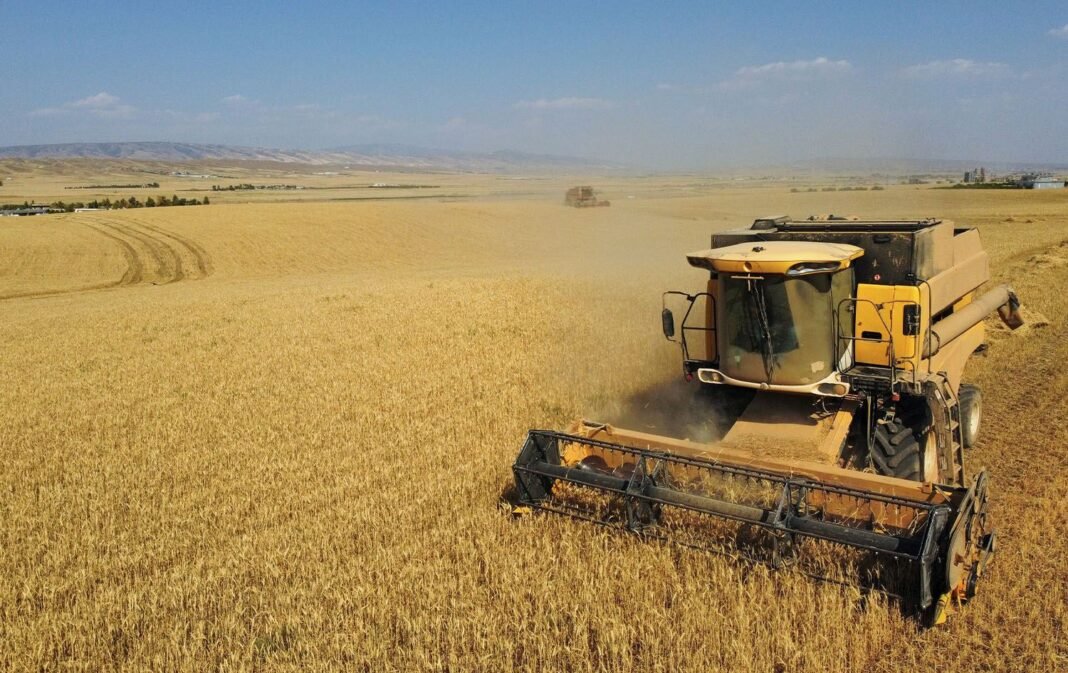Iraq wheat production reached a new milestone this season as Karbala reported its highest harvest ever. The province recorded over 305,000 tons of wheat, marking a major success in Iraq’s agricultural sector. Officials celebrated this achievement as a breakthrough for desert farming in the country.
The Karbala Directorate of Agriculture confirmed the figures earlier this week. According to the directorate’s spokesperson, this year’s harvest exceeded all expectations. as well as In the past, wheat output in Karbala rarely passed 3,000 tons. Now, new methods and strong support have changed the game.
Iraq wheat production rose sharply due to the expansion of center pivot irrigation systems. Over 3,000 of these modern sprinklers now operate on Karbala’s farmlands. So Farmers used them to irrigate 365,000 dunams, most of which lie in formerly dry desert zones.
These areas depend on artesian wells and advanced sprinkler systems. as well as These tools have transformed unused land into productive farmland. Thanks to these improvements, Karbala’s farmers reached a new level of output.
Officials delivered the majority of the crop—305,000 tons—to the state-run Grain Trading Company. Payment for the wheat depended on irrigation type. Center pivot-grown wheat sold for 850,000 Iraqi dinars per ton, while traditional irrigation wheat earned 800,000 per ton.
This pricing structure encourages farmers to adopt modern technology. It rewards efficient water use and higher yields. The government aims to expand this approach to other provinces in the future.
Iraq wheat production continues to benefit from national reforms. The Ministry of Agriculture played a key role this season. So Officials distributed over 700 modern sprinklers to support Karbala’s farmers. These tools helped expand agriculture deeper into the desert.
Karbala’s agricultural success also reflects the farmers’ hard work and growing experience. Their efforts, paired with government support, turned a challenging environment into a productive farmland zone.
This year’s harvest proves that Iraq can grow more of its own food with the right tools. Experts believe the same model could work in other provinces with similar terrain. Officials hope that Karbala’s success will inspire more investment in modern farming.
If trends continue, Iraq wheat production may reduce the need for imports and improve food security. Leaders plan to keep supporting farmers with equipment and training to sustain this progress.


